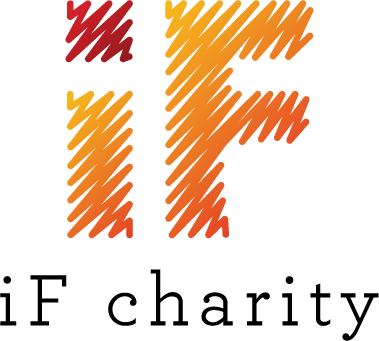
May 30, 2025
Dhul Hijjah 2025: A guide to the most blessed days of the year
Dhul Hijjah is one of the holiest months in Islam, home to the sacred pilgrimage of Hajj and the celebration of Eid ul-Adha. It is a time of immense reward, reflection, and renewal of faith.
At IF Charity, we’ve prepared this guide to help you make the most of these sacred days – whether through worship, charity, or sacrifice.
A sacred month
Allah says in the Qur’an:
“Indeed, the number of months ordained by Allah is twelve – in Allah’s Record since the day He created the heavens and the earth – of which four are sacred…”
(Qur’an 9:36)
Among these sacred months are Dhul-Qa’dah, Muharram, Rajab, and Dhul Hijjah. During these months, good deeds carry multiplied reward – and sins carry greater weight. It is a time to be mindful, to avoid wrongdoing, and to increase our acts of worship.
Days beloved to Allah
The Prophet Muhammad ﷺ said:
“There are no days in which righteous deeds are more beloved to Allah than in these days (i.e. the first ten days of Dhul Hijjah).”
(Abu Dawud)
The first ten days of Dhul Hijjah are known as the best days of the year. They include the Day of Arafah and the Day of Sacrifice, the most significant day of Hajj and the Islamic calendar.
The best of deeds to do in Dhul Hijjah
Perform Hajj
The Prophet ﷺ said:
“The reward for a Hajj Mabroor is nothing but Paradise.”
(Bukhari)“Whoever performs Hajj and does not commit obscenity or transgression will return as sinless as the day they were born.”
(Bukhari)
If you are not performing Hajj, you can still benefit from the many other forms of worship this month offers.
Fasting
Allah says:
“All the deeds of the son of Adam are for him, except fasting, which is for Me and I shall reward for it.”
(Bukhari)
The Prophet ﷺ used to fast the first nine days of Dhul Hijjah. If you’re unable to fast all nine, make an effort to fast on the 9th – the Day of Arafah – which expiates the sins of the past and coming year.
Increase in Dhikr
“There are no days that are greater before Allah or in which good deeds are more beloved to Him than these ten days, so recite a great deal of tahleel, takbeer and tahmeed during them.”
(Ahmad)
Tahleel: La ilaha illallah
Takbeer: Allahu Akbar
Tahmeed: Alhamdulillah
Recite the Takbeer Tashreeq after every fardh prayer from Fajr on the 9th to Asr on the 13th:
Allahu Akbar, Allahu Akbar, la ilaha illallah, Allahu Akbar, wa lillahil-hamd
Offer Qurbani
“It is not their meat nor their blood that reaches Allah; it is their piety that reaches Him.”
(Qur’an 22:37)
Qurbani (Udhiyyah) is the Sunnah of Prophet Ibrahim ﷺ and a deeply symbolic act of submission. It is a means of providing for vulnerable families and of drawing closer to Allah.
Note: If you intend to offer a Qurbani, refrain from cutting your hair or nails from the start of Dhul Hijjah until the sacrifice is made.
Give charity
The Prophet ﷺ said:
“That you give in charity while you are healthy, fearing poverty and hoping for wealth, is the most rewarding.”
(Bukhari)
Giving charity is from the most excellent and the most virtuous of all the acts of worship. For indeed, just as there is worship of the limbs when we stand in prayer, and when we withhold from food when we fast, then these are acts of worship with one’s body. Likewise there is worship with one’s wealth which is in giving charity. See how you can help Gaza with your Qurbani.
Recite the Quran
“Whoever reads a letter from the Book of Allah will receive a reward – and that reward will be multiplied by ten.”
(Tirmidhi)
Reading the Qur’an in Dhul Hijjah, even a short surah like Surah Ikhlas, holds tremendous weight.
Practice exemplary character
“Nothing will be heavier on the Day of Resurrection in the scale of the believer than good manners.”
(Tirmidhi)
Speak kindly, avoid backbiting, and embody mercy and patience during these days and beyond.
Honour your parents
“The best of deeds is prayer on time.”
“Then what?”
“Kindness to parents.”
(Muslim)
Serving and honouring our parents is one of the most beloved deeds to Allah – and a key to earning His pleasure.
Increase voluntary prayers
Try to maintain the 12 Sunnah units of prayer daily, and incorporate additional prayers like:
- Salat al-Duha (after Fajr and before midday)
- Tahiyyat al-Wudhu (after ablution)
- Tahajjud (late-night prayer)
Make dua and seek forgiveness
“When My servants ask about Me, tell them I am near…”
(Qur’an 2:186)
We should busy ourselves in dua and seeking Allah’s forgiveness during these ten blessed days and nights, particularly on the night and day of Arafat which is the 9th of Dhul Hijjah. Duas are also readily accepted during fasting and fasting the Day of Arafat expiates the sins of two years!
Download the full guide
Download the full Dhul Hijjah Guide here.
Want to help Gaza with your Qurbani? See how you can help here.


![IF Charity staff seen in a tent camp for displaced families in the Gaza Strip in April 2025 [IF Charity]](https://i0.wp.com/www.ifcharity.org.uk/wp-content/uploads/2025/04/202503-Gaza-13.jpg?fit=600%2C400&quality=90&strip=all&ssl=1)


![A shepherd with his herd in Morocco [MISTR STUDIOS / @mistr_studios / Unsplash]](https://i0.wp.com/www.ifcharity.org.uk/wp-content/uploads/2025/05/mistr-studios-y-bZmWm_CQA-unsplash.jpg?fit=600%2C400&quality=90&strip=all&ssl=1)
![IF Charity staff distribute food vouchers for families in southern Gaza during March 2025, allowing families to choose the products they need with dignity [IF Charity]](https://i0.wp.com/www.ifcharity.org.uk/wp-content/uploads/2025/04/202503-Gaza-1.jpg?fit=600%2C400&quality=90&strip=all&ssl=1)
![IF Charity teams delivering fresh, clean drinking water to displaced people in Gaza in March 2025. The clean water is used for drinking, cooking and washing, and stops the spread of waterborne diseases. [IF Charity]](https://i0.wp.com/www.ifcharity.org.uk/wp-content/uploads/2025/04/202504-Gaza-38.jpg?fit=600%2C400&quality=90&strip=all&ssl=1)